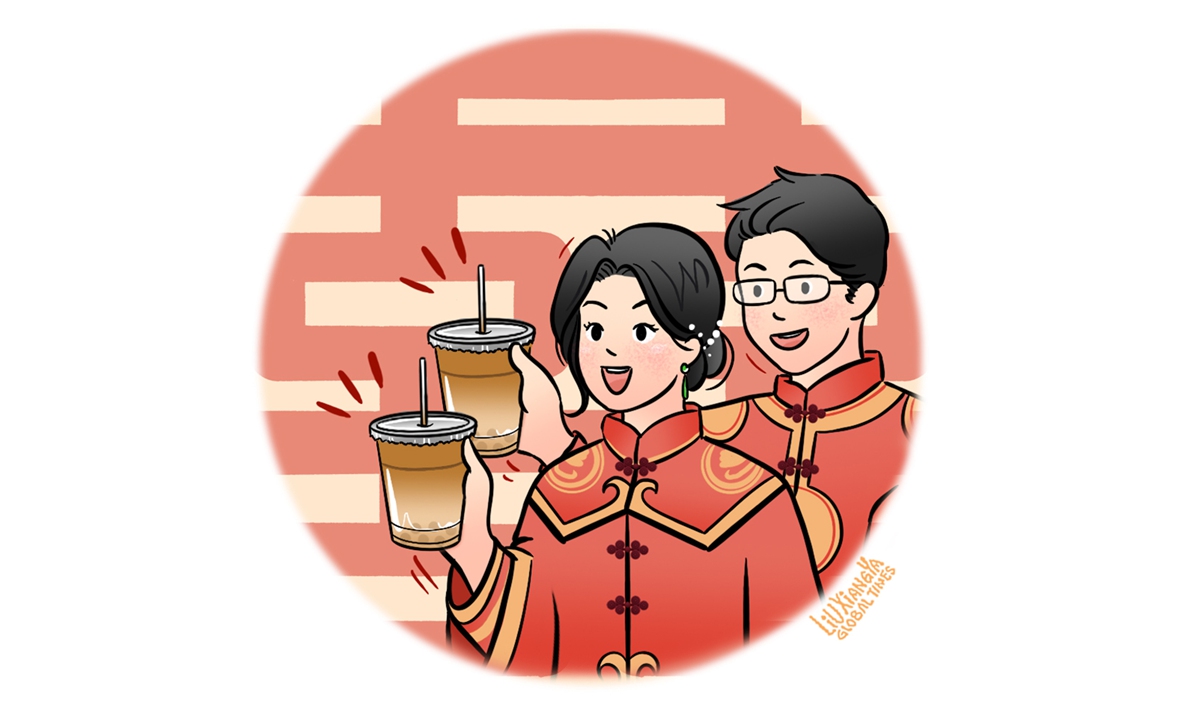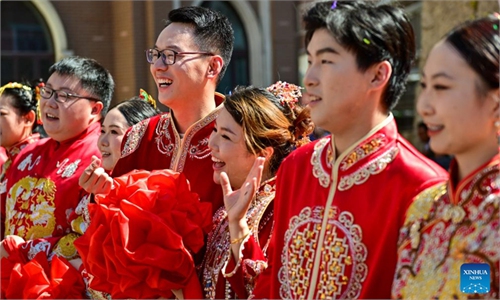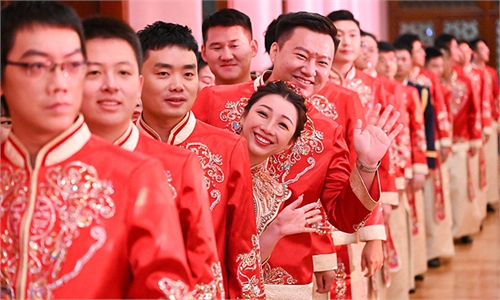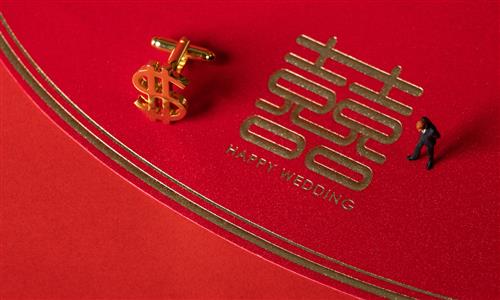ARTS / CULTURE & LEISURE
Embracing modernity and individuality

Illustration: Liu Xiangya/GT
While China's National Day holidays are a traditional time for wedding bells, a cultural shift is quietly taking place. The post-1990 and post-2000 generations, now at the forefront of the matrimonial age, are redefining the routine of traditional wedding ceremonies. These young couples are not just settling for the status quo but instead are crafting weddings that are a reflection of their individuality and creativity, leading to a new cultural trend in Chinese wedding culture.
In a society where tradition has long dictated the norms of marriage, the idea of toasting with a cup of milk tea instead of the traditional baijiu has captured the attention of many netizens.
On Chinese social media, some young couples have noted that they are more willing to be "fully immersed into the sweetness" of milk tea than to get drunk by drinking too much alcohol.
This seemingly small change signifies a broader movement in which many young people are choosing to "substitute tea for liquor" in their engagements and weddings. Some milk tea brands have even catered to this demand by launching wedding-specific services, indicating a market that is both responsive and adaptive to the evolving tastes of the younger generations.
Yu Jinlong, a Beijing-based cultural critic, told the Global Times on Monday that one reason behind this creative movement might be this generation's emphasis on "emotional consumption." They might view milk tea as a symbol of sweetness and happiness. The appearance of new wedding forms like milk tea toasts reflects young people's yearning for a simple and comfortable lifestyle and their admiration for individuality and freedom.
This innovation does not stop with the choice of beverages. The ceremonies and steps involved in weddings are also undergoing a transformation. Some young couples are opting to break away from the rigid forms of the past, choosing instead to express their personalities and preferences.
Stories of a post-2000 couple hosting their wedding at a fast-food restaurant, for instance, have been lauded as "relaxed and distinctive." Venues such as coffee shops, bars and KTVs are also becoming popular choices for nuptial celebrations.
Gaga(pseudonym), a 29-year-old Chinese woman, told the Global Times on Monday that she loves fast food, so she booked a package from McDonald's to host the event, mainly to break away from tradition, as she felt that traditional weddings are too "commercialized and complicated."
They also take charge of their entire wedding, wearing traditional wedding outfits embroidered with dragon and phoenix designs, but paired with red sneakers, mainly to assert that they want to be in control of their own wedding.
For many young people, a wedding is a personal affair, and the mantra "my wedding, my rules" is paramount. They seek simplicity, joy, and getting their money's worth, ideally turning the event into a grand party.
In addition, the trend of "three noes" weddings - no convoy, no bride fetching, and no host - has also sparked widespread discussion online. This minimalist approach to wedding is a testament to the pursuit of simplicity and comfort, representing a stark contrast to the ostentatious displays of traditional weddings.
However, these changes are not merely about the formality of the ceremony. They represent a deeper shift away from the "face consumption" that has long been a part of Chinese society. The emphasis on reputation and face is still evident in certain local customs.
For example, the insistence on using Moutai, one of the most famous Chinese baijiu brands, for toasting, the belief that leftover food at a banquet is a sign of prosperity or the idea that a lively wedding signifies good social connections are, at their core, about "saving face."
But upon closer examination, these so-called customs and rules are not as important when measured against modern social values. The adage "spend money on the essentials, not on 'face'" resonates with the younger generations' approach to weddings, which reflects the disintegration of old interpersonal relationships and the decline of face consumption.
According to Yu, the simplification of weddings is a rational response to the current high cost of weddings and manifestation of young people's pragmatic view of marriage. This innovative approach to weddings by young people reveals a shift in wedding concepts and cultural attitudes, which is encouraging and deserves support.
The author is a reporter with the Global Times. life@globaltimes.com.cn




